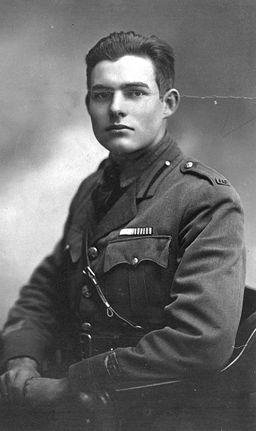World War I, originally called the Great War, resulted in more than nine million deaths. The official starting point was the assassination of the heir to the Austro-Hungarian throne, Archduke Franz Ferdinand of Austria. However, this was simply the spark that lit a tinder keg of overbuilt armies, imperial tensions, and complex alliances creating two opposing political forces in Europe: the Allies and the Central Powers.

The Great War became a war of attrition due to the use of trench warfare, in which both sides dug elaborate trenches where they could shelter from the enemy's artillery fire. The trench would be protected by barbed wire. In between the trenches stretched No Man's Land, and troops ordered over the top would have to climb up and cross a considerable space unprotected from the enemy's firearms in order to reach their foes and attack. Such a charge usually would gain a side only a small stretch of land, if any, and would result in many deaths. Chemical attacks had not yet been banned; Wilfred Owen's poem 'Dulce et Decorum Est' describes the experience of facing a gas attack.
While living in the trenches, conditions were deplorable. Disease was rife: Trench foot, in which soldiers suffered from gangrene and fungus as a result of wet, muddy conditions; Trench fever, which included conjunctivitis, rashes, and headaches; and Trench mouth, or acute necrotizing ulcerative gingivitis. At least two million deaths in the trenches resulted from disease before the Treaty of Versailles ended the war on 28 June 1919.
In the aftermath of the war there arose a group of young persons known as the "Lost Generation." The term was coined from something Gertrude Stein witnessed the owner of a garage saying to his young employee, which Hemingway later used as an epigraph to his novel The Sun Also Rises (1926): "You are all a lost generation." This accusation referred to the lack of purpose or drive resulting from the horrific disillusionment felt by those who grew up and lived through the war, and were then in their twenties and thirties. Having seen pointless death on such a huge scale, many lost faith in traditional values like courage, patriotism, and masculinity. Some in turn became aimless, reckless, and focused on material wealth, unable to believe in abstract ideals.
In literature, the "Lost Generation" refers to a group of writers and poets who were men and women of this period. All were American, but several members emigrated to Europe. The most famous members were Gertrude Stein, Ernest Hemingway, F. Scott Fitzgerald, and T. S. Eliot.
Common themes in works of literature by members of the Lost Generation include:
Decadence - Consider the lavish parties of James Gatsby in Fitzgerald's The Great Gatsby or those thrown by the characters in his Tales of the Jazz Age. Recall the aimless traveling, drinking, and parties of the circles of expatriates in Hemingway's The Sun Also Rises and A Moveable Feast. With ideals shattered so thoroughly by the war, for many, hedonism was the result. Lost Generation writers revealed the sordid nature of the shallow, frivolous lives of the young and independently wealthy in the aftermath of the war.
Gender roles and Impotence - Faced with the destruction of the chivalric notions of warfare as a glamorous calling for a young man, a serious blow was dealt to traditional gender roles and images of masculinity. In The Sun Also Rises, the narrator, Jake, literally is impotent as a result of a war wound, and instead it is his female love Brett who acts the man, manipulating sexual partners and taking charge of their lives. Think also of T. S. Eliot's poem The Love Song of J. Alfred Prufrock, and Prufrock's inability to declare his love to the unnamed recipient.
Idealised past - Rather than face the horrors of warfare, many worked to create an idealised but unattainable image of the past, a glossy image with no bearing in reality. The best example is in Gatsby's idealisation of Daisy, his inability to see her as she truly is, and the closing lines to the novel after all its death and disappointment:
"Gatsby believed in the green light, the orgastic future that year by year recedes before us. It eludes us then, but that's no matter- to-morrow we will run faster, stretch our arms farther... And one fine morning--
So we beat on, boats against the current, borne back ceaselessly into the past."
